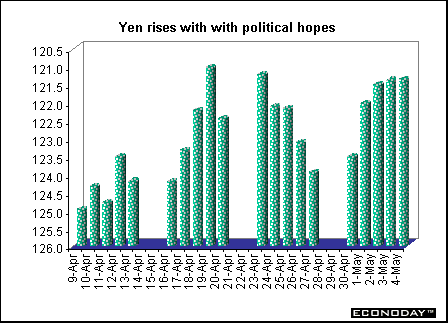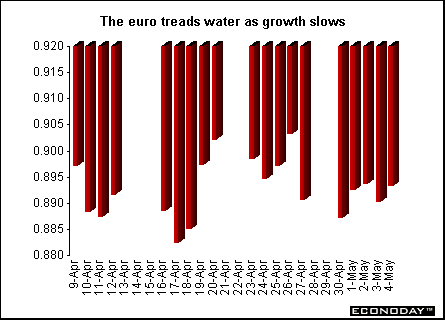
Currencies
Masajuro Shiokawa, Japan's new finance minister, admits to not being an expert in economics, but currency traders say that doesn't mean he's politically naive enough to want to preside over a weakening yen. While the yen slumped after Shiokawa was appointed, he helped the currency regain ground last week. He did so by winning complements at the Group of Seven weekend meeting and by chanting the ministry's mantra on currency stability. With the Japanese markets closed most of the week, the yen rose on hopes that the new government would finally come to grips with their economy's problems and take action.

Traders are looking for Koizumi to go into the specifics of exactly how he intends to carry out the necessary crucial structural reforms on Monday. But looking beyond the speeches, market participants will be watching the unfolding of earnings for the fiscal year that just ended. Earnings are likely to be bad for the Nikkei and the yen as well. Whatever Koizumi's plans, currency markets have whole heartedly embraced his popularity; the yen has appreciated rapidly from late April's lows over Y124.00 to May 4th highs near Y120.50.
The euro continues its struggle to rebound from this year's drop against the dollar as investors pump money into the United States and the European Central Bank leaves interest unchanged as economic growth slows in the region. Europeans bought a record $37.4 billion of stocks and bonds from U.S. investors in February according to the latest U.S. Treasury figures. Investors say they are selling European assets because they are convinced the Federal Reserve will revive the economy. The outlook for growth generally drives currencies. And the dollar has been strong because investors have a lot more confidence in the ability of U.S. policy making to restore growth.



Introduction • Global Stock Market Indexes • Recap of Global Markets • Currencies • Indicator Scoreboard

The Bottom Line • Looking Ahead
|